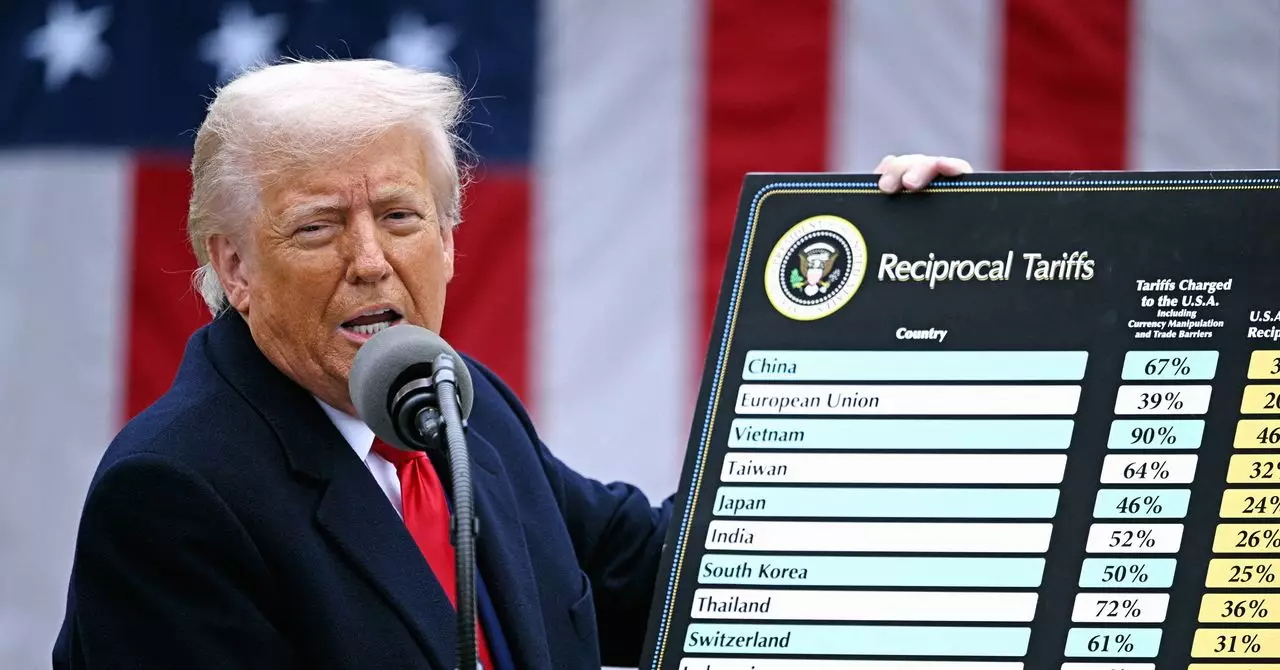In the realm of global trade and e-commerce, the concept of the de minimis exemption has emerged as a double-edged sword. This compliance measure, which allows certain goods valued below a specific threshold to enter the United States duty-free, has become a pivotal component for numerous Chinese retailers, including shopping giants like Shein and Temu. These companies have leveraged the exemption to send millions of packages to American consumers, markedly lowering the cost of products. However, the implications of maintaining or scrapping this exemption run deep, affecting not only Chinese sellers but also other marketplaces such as eBay and Etsy, which foster cross-border buying experiences.
While the de minimis exemption has allowed budget-conscious American shoppers access to an array of affordable products, a looming threat exists: the potential elimination of this provision. The move is rumored to be part of a larger strategy by political figures, notably former President Donald Trump, who appears to be utilizing trade regulations as a bargaining tool in diplomatic dialogues with China. The nuances of this unfolding situation reflect more than just tariffs—they indicate an emerging battleground for control of the e-commerce market landscape.
The Economic Repercussions of Regulatory Change
The intended reform of the de minimis exemption stands to disrupt the delicate balance that exists in contemporary e-commerce. If eliminated or replaced with higher tariffs, the fallout would be significant. Consumers accustomed to low-cost imports may find themselves facing steep price increases, engendering a wave of discontent among the price-sensitive demographic. Retailers, on the other hand, might struggle to maintain profit margins amid shifting operational costs.
As Ram Ben Tzion, the co-founder and CEO of a digital shipment vetting platform, aptly noted, the magnitude of this change is “gigantic.” Analysts warn that the shift could radically reshape online shopping as Americans know it, creating a potential scenario where consumers may not only pay more but also see a decrease in product variety. Such dynamics could impact even established players like Amazon, which is vying for market share against brands like Shein and Temu that thrive on the affordability aspect driven by the exemption.
The Complacent Behemoth: Amazon’s Response
Interestingly, while some companies may suffer, others are pivoting toward opportunities that arise amidst chaos. Amazon’s entry into the low-cost goods market—encompassing products sourced from Chinese vendors—is particularly noteworthy in this context. With its vast logistical capabilities and resources, Amazon may shift strategies to mitigate any fallout from tariff changes, pointing to the resilience of corporate giants amid changing tides.
The ambiguity around tariffs creates a complex environment for e-commerce companies, as illustrated by new offerings from technology firms that aim to provide strategic solutions to those impacted by potential changes. Take Palantir, a defense contractor that quickly publicized an artificial intelligence service designed to help businesses navigate tariff regulations.
The Unforeseen Windfall for Some
Amid the turmoil and uncertainty, certain sectors may indeed find favorable prospects. Jay Gerard, head of customs and logistics at Nuvocargo, emphasizes that his company has seen an uptick in demand due to regulatory shifts, predicting increased customer activity as businesses scramble for assistance in navigating forthcoming changes. While he personally abhors tariffs, the demand for logistics services has surged, showcasing an unexpected dichotomy: hardship for many, yet opportunity for others.
Gerard’s portrayal of the recent chaos contributes to a broader understanding of the economic ecosystem surrounding trade policies. Importers faced with the sudden imposition of substantial duties, even for a short span, illustrate the precarious nature of dealing with shifting regulations. The monetary implications become glaringly apparent—importing trucks laden with high-value goods could incur unforeseen costs that severely affect profitability and operational viability.
The Future of E-Commerce in a Post-De Minimis World
As conversations regarding the elimination of the de minimis exemption intensify, stakeholders from various sectors brace for change. The uncertainty of the current geopolitical climate, entwined with fluctuating trade policies, leaves plenty of unanswered questions. Will American consumers adapt to increased prices and diminished options? Will companies recalibrate their business models to withstand the impact of tightening regulations?
It is evident that the potential removal of the de minimis exemption holds substantial implications for the future of e-commerce as both a concept and a practical reality. As market forces collide with political motivations, the story is far from over; the evolution of online shopping depends on adaptability. The door remains wide open for innovation, reshaping the course of the industry—even as it teeters on the brink of significant transformation.

